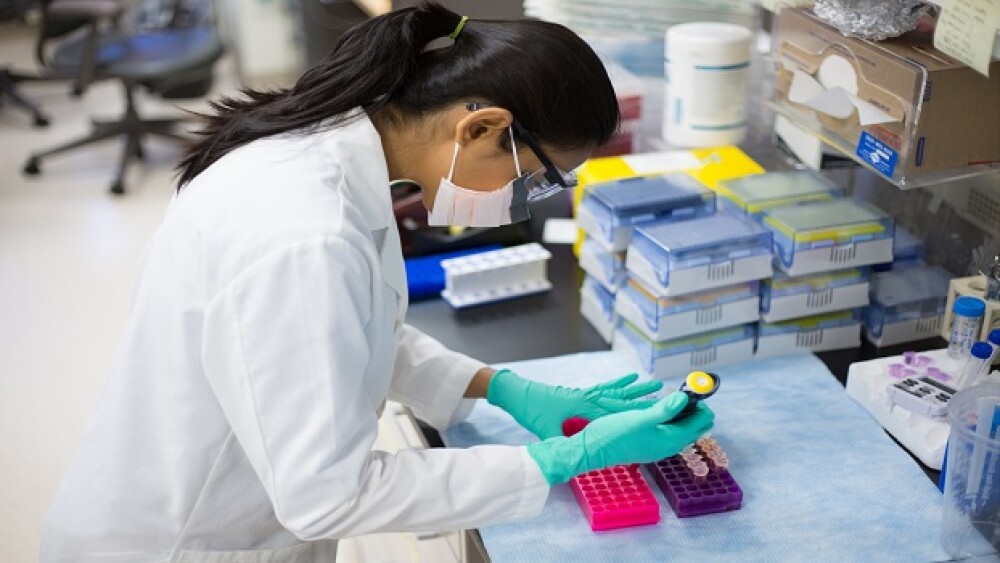Shares of Newton, Mass.-based Karyopharm Therapeutics is skyrocketing in premarket trading after the company announced late Monday it will seek U.S. Food and Drug Administration approval for its investigational drug selinexor following strong top-line results from a Phase IIb trial.
Shares of Newton, Mass.-based Karyopharm Therapeutics is skyrocketing in premarket trading after the company announced late Monday it will seek U.S. Food and Drug Administration (FDA) approval for its investigational drug selinexor following strong top-line results from a Phase IIb trial.
After falling more than 13 percent in regular trading Monday, investors have been snapping up shares of Karyopharm and driven the price up more than 23 percent in early trading today. On Monday the company announced that 25.4 percent of refractory multiple myeloma patients on the drug achieved an overall response during the mid-stage trial. Karyopharm said that strong response included two complete responses and 29 partial or very good partial responses. The median duration of response was 4.4 months.
Sundar Jagannath, director of the multiple myeloma program at Tisch Cancer Institute at Mount Sinai School of Medicine, called the 25.4 percent response rate “highly compelling.” Jagannath said the data underscore’s selinexor’s potential to be a new treatment option for “difficult-to-treat patients who have exhausted approved therapies.”
With the strong results in hand, as well as the FDA’s Fast-Track designation, the company is aiming to seek approval later this year. Karyopharm said it will request an expedited review in order to potentially make the treatment more readily available for patients. The company also intends to seek regulatory approval in Europe from the European Medicines Agency in early 2019. In addition to the Fast Track designation, selinexor has also been granted Orphan Drug designation in multiple myeloma.
Selinexor is a first-in-class, oral Selective Inhibitor of Nuclear Export / SINE compound. Selinexor functions by binding with and inhibiting the nuclear export protein XPO1 (also called CRM1), which leads to the accumulation of tumor suppressor proteins in the cell nucleus.
The Phase IIb trial involved 122 “heavily pretreated patients” with penta-refractory myeloma who had not responses to at least five different types of treatments, including immunomodulatory drugs and proteasome inhibitors. Each patient received 80mg oral selinexor twice weekly in combination with low-dose dexamethasone (20mg twice weekly). After dosing with selinexor Karyopharm said the data showed a “predictable and manageable tolerability profile.” The company added that the safety profile was consistent with that seen during the Phase I study. The most common adverse events (AEs) were nausea, vomiting, fatigue and reduced appetite, but the company said these were all manageable.
“Penta-refractory myeloma is an area of true unmet medical need as these patients have continued to progress despite receiving available therapies. We are fully committed to bringing this new, orally administered potential treatment option to patients who have no other therapy options of proven benefit,” Sharon Shacham, founder, president and chief scientific officer of Karyopharm said in a statement. “To our knowledge, oral selinexor is the most advanced agent being investigated in patients with penta-refractory myeloma and we look forward to submitting our NDA to the FDA during the second half of this year, with a submission to the EMA to follow.”
Karyopharm is also exploring selinexor’s efficacy in other cancer indications. The company said it has ongoing studies in backbone therapies, in diffuse large B-cell lymphoma and liposarcoma. Karyopharm is imitating a Phase III multiple myeloma trial testing selinexor in combination with Takeda’s Velcade (bortezomib) and low-dose dexamethasone.





